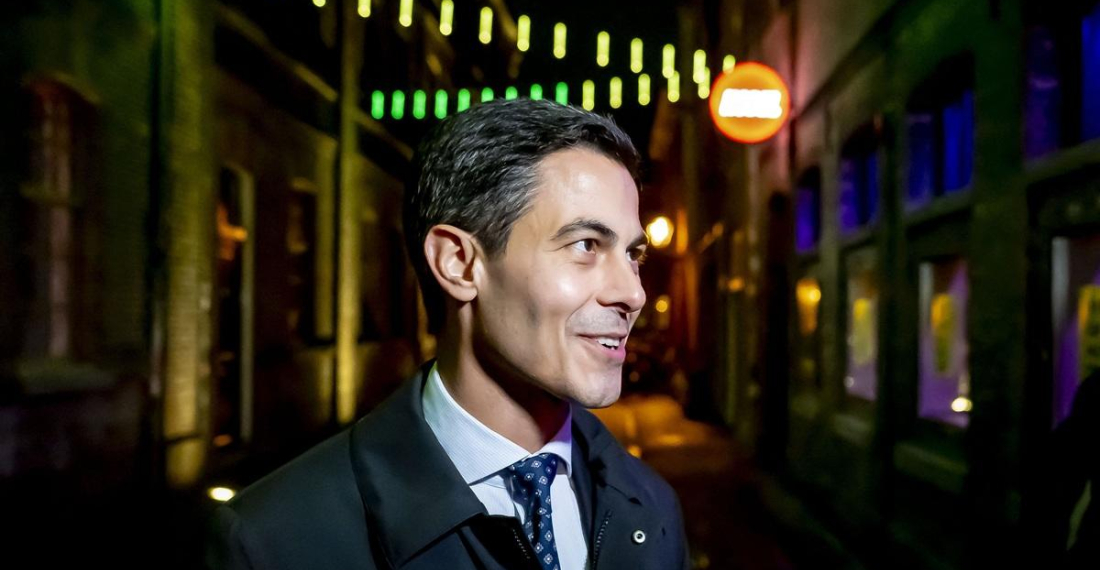The Netherlands is set to elect its youngest ever prime minister after the far-right party of Geert Wilders was projected to suffer losses in an election he brought about by bringing down the government. Rob Jetten, the 38-year-old leader of the pro-European centrist D66 party, is on course to claim the top job with most votes counted. His party is projected to win 27 of the 150 seats in the country's lower house of parliament, beating Mr Wilder's Freedom Party on 25, according to an exit poll by Ipsos. It comes just two years after he led his party to victory in the last election, winning 37 seats, although his coalition partners refused to endorse him as prime minister. Mr Jetten will also need to rely on a coalition himself, with 76 seats needed for a majority. At least four parties will be required for him to get there.
One of Europe's longest-serving populist leaders, Mr Wilders is known for his anti-Islam stance and had proposed denying all asylum requests, sending all male Ukrainian refugees back to their homeland, and cancelling foreign aid. He brought the government down in June over its refusal to adopt his hardline measures. "I regret the loss," he said in the early hours of Thursday, "but it's not as if we were wiped off the map." He said Mr Jetten "deserves congratulations".
D66's Mr Jetten, who would also become the country's first openly gay prime minister, enjoyed a surge in support in the month leading up to polling day. He campaigned on a promise to resolve a housing shortage, invest in education, and tackle immigration.
Like the other mainstream parties in the race, Mr Jetten also committed to support for Ukraine, NATO, and the EU. "We've shown not only to the Netherlands, but also to the world that it is possible to beat populist and extreme right movements," he told a crowd of supporters. Mr Jetten will first need to embark upon weeks or months of talks with other party leaders to form a coalition. One possible scenario is a pact including D66, the conservative Christian Democrats, the centre-right VVD, and the Greens-Labour party.
Millions of Dutch people cast their votes in a variety of locations including zoos, football stadiums, and windmills. They had a bewildering range of 27 parties to choose from, meaning each voter had to grapple with a huge A3 sheet of paper containing the candidates.
Frans Timmermans, an experienced former European Commission vice-president, touted himself as a safe pair of hands with strong environmental credentials. "This is one of the richest countries on the planet, and still, self-confidence is very low," Timmermans, who heads the Green/Labour left-wing alliance, told AFP in a pre-election interview. "We need to bring that back because there's no issue that we can't solve," said Timmermans, 64, a former foreign minister who speaks six languages.
Violence and disinformation marred the campaign in the European Union's fifth-largest economy and major global exporter. Demonstrators against shelters for asylum-seekers clashed with police in several cities, and violence erupted at an anti-immigration protest in The Hague last month. Wilders was forced to apologise to Timmermans after two party members created AI-generated images to discredit the leftist leader.
Until a new government is former, outgoing Prime Minister Dick Schoof will run the country -- reluctantly. "I wouldn't wish it on you," he told one MP in parliament. "If you accept this job, you know that it will end someday," Schoof told AFP after casting his vote.
Voters appeared to yearn for a return to less polarising politics. "I think society should be more positive and less negative," Bart Paalman, a 53-year-old baker, told AFP, as cast his vote at the Anne Frank House, converted into a polling station for election day. "I'm voting for a party that's not that aggressive."







